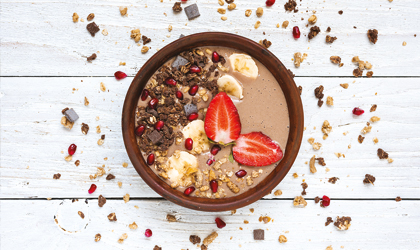
What is Pygeum?
Pygeum (pronounced pie-jee-um) supplements are based on bark extract taken from the Prunus Africana tree, which is native to central and southern Africa and has been used there for centuries.
What is pygeum commonly used for?
In modern times the uses are largely unchanged. Touted as natural support for a specific men’s health condition.
Why don’t we sell pygeum?
Pygeum is collected from the wild, not cultivated. Due to concerns over demand CITES (Convention on International Trade in Endangered Species of Wild Fauna and Flora) have recommended that additional protection of pygeum is needed [1]. One of our principal commitments is never to sell endangered or threatened species, so pygeum would never find its way on to our portfolio.
Mild gastrointestinal upset was identified as a common side effect of taking pygeum, and poorly designed studies didn’t provide evidence to support the health claims.
What are the alternatives?
Prostex® contains popular nutrients including 15mg of zinc, which contributes to the maintenance of normal testosterone concentrations, Beta Sitosterols and relevant levels of the important bioflavonoid, quercetin. Plus 3 important amino acids, alanine, glycine and glutamic acid, this formula takes some beating! Take a look at the glowing reviews from frequent customers by clicking here.
Need FREE confidential nutrition advice? Contact our Nutrition Advice Team by clicking here.
Further reading… why not browse our Blog articles to find out more about how to support a healthy lifestyle.
References:
-
CITES (1994). CITES Inclusion of Prunus Africana in Appendix II. Available online: file:///C:/Users/M258169/Downloads/CoP9_Prop111_Prunus.PDF
You Might Also Like

Keri
Keri Filtness has worked in the Nutrition Industry for 19 years. She is regularly called upon for her professional comments on health and nutrition related news. Her opinions have been featured by BBC3, Prima, Vitality, The Mirror, Woman’s Own and Cycling Weekly, amongst others. She has also worked one to one with journalists, analysing their diets and health concerns and recommending changes and additions, where appropriate.
View More



